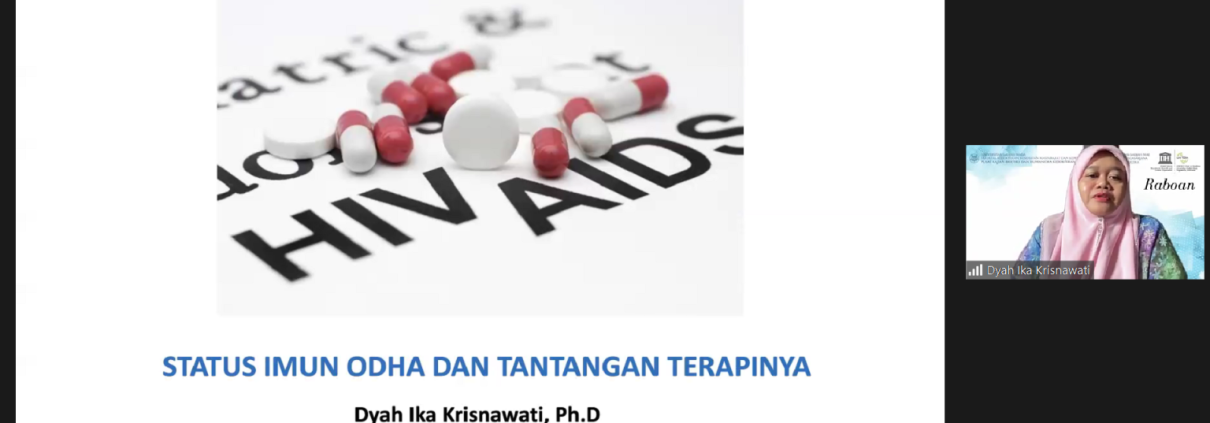Immune Status of PLWHA and The Challenges of Its Therapy
The Center for Bioethics and Medical Humanities (CBMH FK-KMK UGM) again held a virtual discussion forum, Raboan Discussion Forum on Wednesday (27/04). The topic raised on the occasion was the Immune Status of PLWHA and the challenges of therapy. CBMH FK-KMK UGM as the committee invited Ns. Dyah Ika Krisnawati, S.Kep, M.Si, Ph.D., lecturer at the Dharma Husada Nursing Academy in Kediri, East Java. Meanwhile, the event was guided by moderator Nabila Puspakesuma, S.Psi, M.Sc.
Providing treatment to patients with HIV-AIDS has its difficulties for the health workers. This is because of the characteristics of the HIV-AIDS disease that attacks the human immune system. A patient with HIV-AIDS has a condition where he is required to take drugs or other therapies so that the development of the HIV does not get worse. This obligation can burden the patient’s life so that the patient often feels tired during his treatment.
Ns. Dyah Ika Krisnawati explained that three therapies can be used to treat HIV/AIDS patients. These therapies include drug therapy, complementary therapy, and immunotherapy.
HIV/AIDS patients require antiretroviral (ARV) treatment. These treatments can slow the growth of HIV or make the virus fail to form new viruses. Currently, the use of ARV treatment with a high level is increasingly being used. This therapy is known as Highly Active Antiretroviral Therapy (HAART).
During ARV/HAART therapy, patients will experience side effects such as nausea, vomiting, fatigue, rash, weight loss, sleep disturbances, depression, muscle aches, and so on. These side effects can reduce the patient’s interest in being disciplined in taking drugs. So it takes the patience of health workers to help patients.
In addition to health workers, patients also need support from other parties, including family, friends, and peer groups, to financial support so that patients can continue to have the motivation to take their treatment.
In addition to drug therapy, complementary therapies and immunotherapy can also help patients improve their quality of life. In particular, complementary therapies in the form of traditional medicines can be used to improve the patient’s immune system through herbal medicines.
Other complementary therapies such as therapeutic information therapy can increase the patient’s self-confidence and motivation to be able to carry out the treatment. Providing accurate and appropriate information for patients can treat misunderstandings about the patient’s condition, treat depression, and restore the soul of HIV sufferers. The therapy can also be supplemented with spiritual remedies such as prayer and meditation.
In addition, there is physical therapy such as exercise that can be used by patients to calm their anxiety about their HIV/AIDS disease.




Leave a Reply
Want to join the discussion?Feel free to contribute!